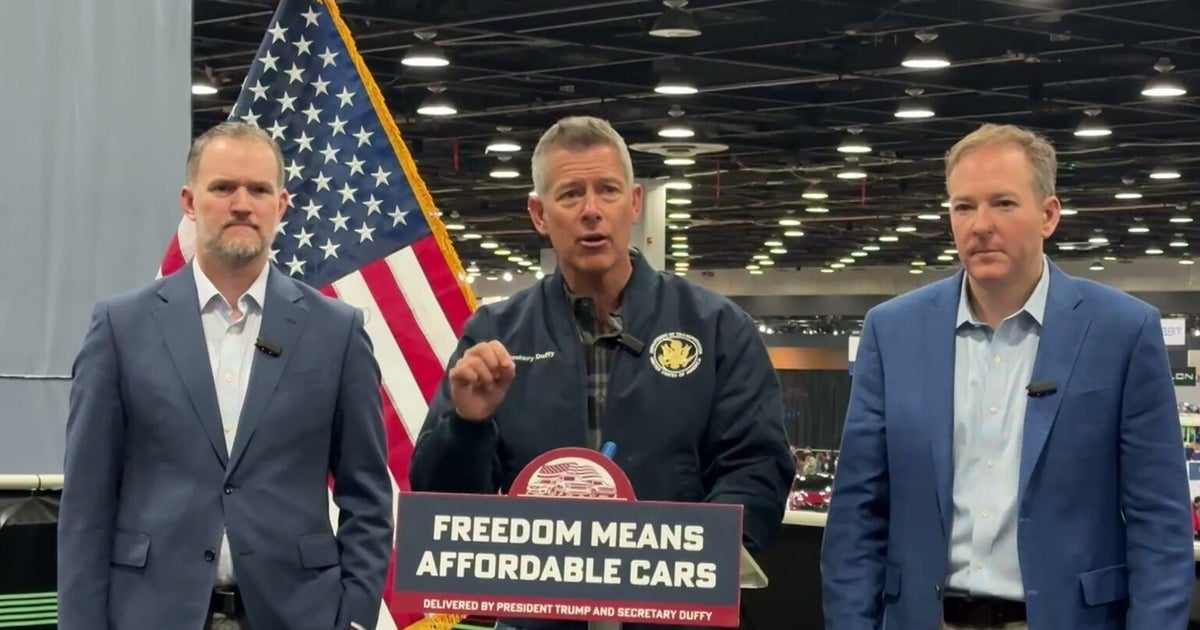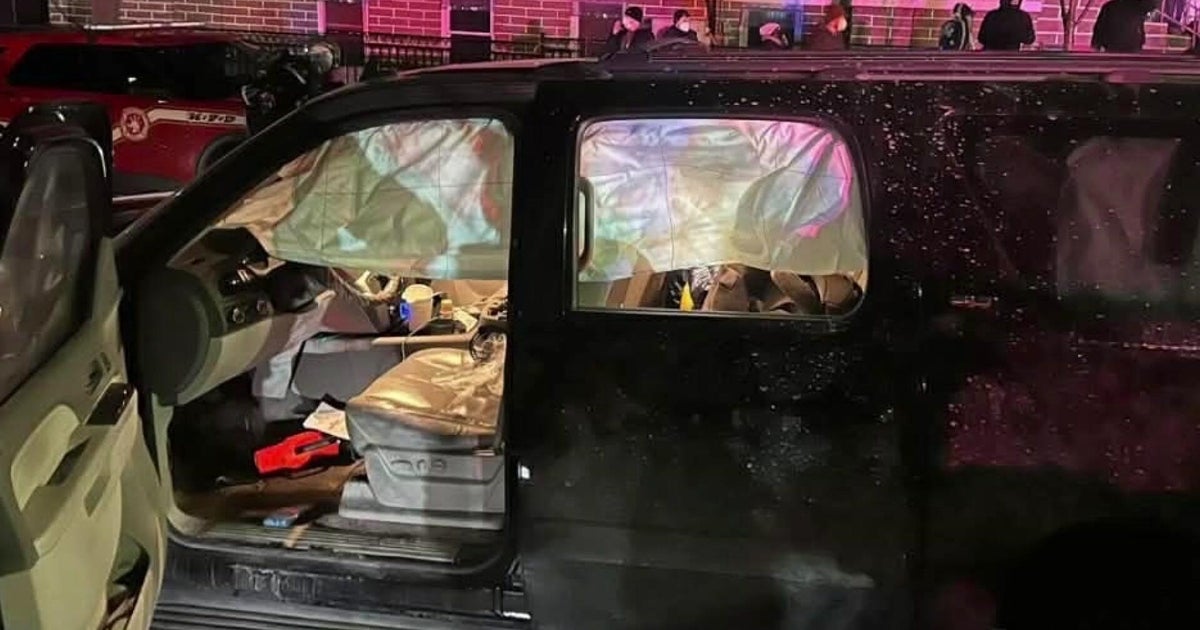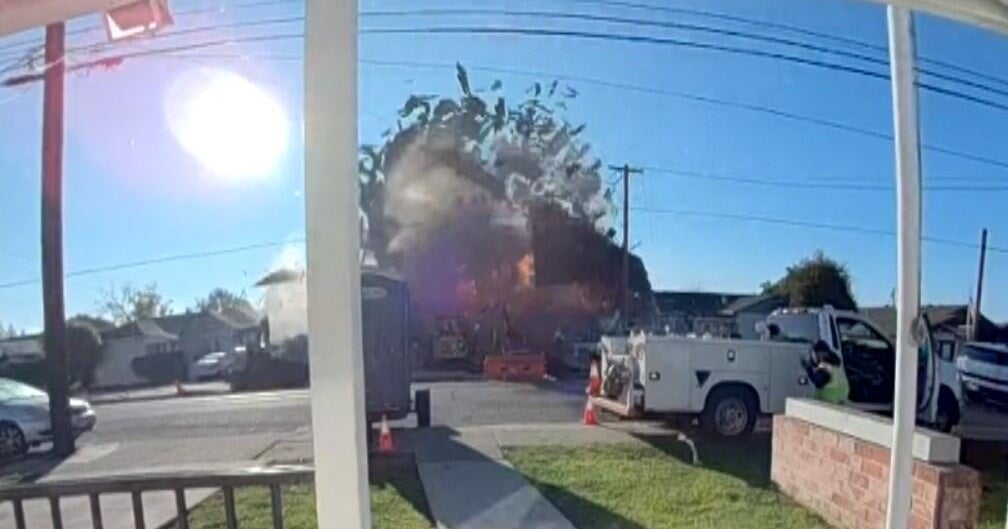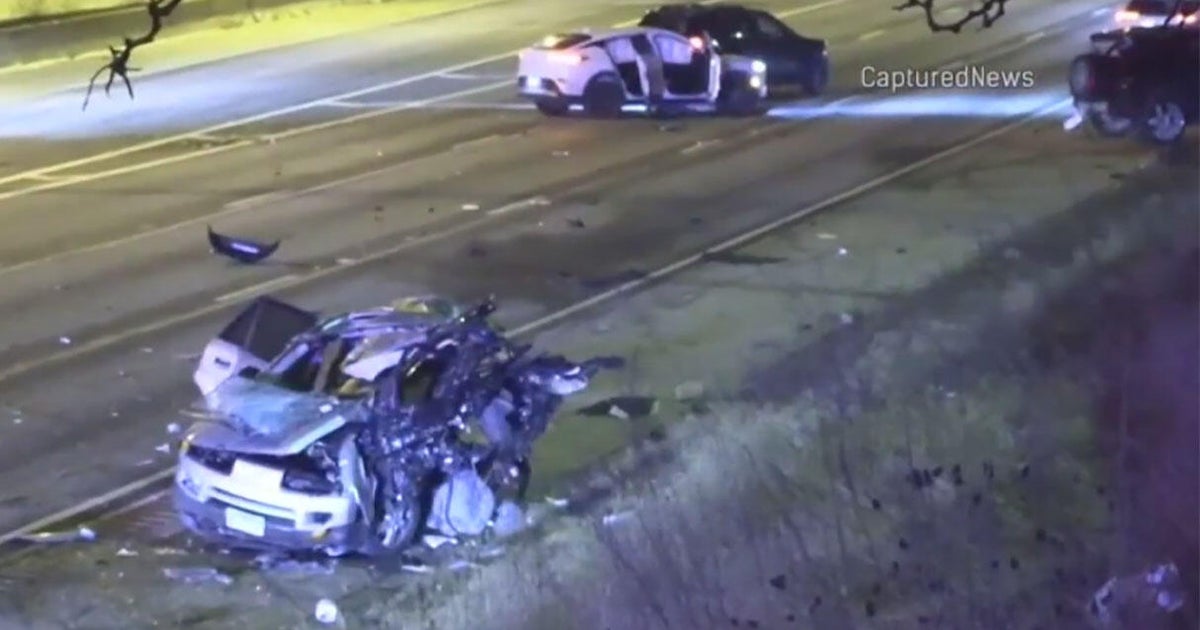EPA grants California waiver to ban sales of new gas-powered cars by 2035; Trump administration likely to block
The U.S. Environmental Protection Agency on Wednesday granted California its request to enforce vehicle emissions standards stricter than federal rules, including the state's ban on sales of new gasoline-powered cars.
The EPA granted two waivers to the California Air Resources Board to allow full implementation of its regulation requiring all new car sales to be zero-emission by 2035 and a second rule lowering emissions standards for heavy-duty trucks and off-road vehicles.
The stricter rules would also set interim quotas for zero-emission vehicles. Starting with 2026 models, 35% of new cars, SUVs and small pickups sold in California would be required to be zero-emission vehicles, with quotas increasing each year until 2035.
The quotas would allow 20% of zero-emission cars sold to be plug-in hybrids. The rules would not affect used vehicles, allowing gas-powered car and trucks to remain on the roads.
Other states that have followed California's lead on stricter emissions rules are weighing whether or not to also adopt the ban on gas cars.
Trump administration seeks to block California rules
California's strict emission rules will likely see an immediate challenge from the incoming administration. President-elect Donald Trump has vowed to bar the state from setting its own rules on emissions, which his first administration did in 2019 by revoking the state's EPA waiver. The move prompted California and 22 other states to sue the administration, a lawsuit that became moot when President Joe Biden took office and reversed the Trump administration policy.
"Clean cars are here to stay. The Biden-Harris Administration reaffirmed what we've known for decades -- California can rise to the challenge of protecting our people by cleaning our air and cutting pollution," said California Gov. Gavin Newsom in a prepared statement. "Naysayers like President-elect Trump would prefer to side with the oil industry over consumers and American automakers, but California will continue fostering new innovations in the market."
Last month, Newsom announced the state would renew a rebate program for electric vehicles if the incoming Trump administration follows through on its threat to eliminate the federal tax credit of $7,500.
Efforts by the incoming administration to block California's emissions standards will likely prompt a series of legal challenges that could delay any action.
Last week, the U.S. Supreme Court agreed to hear a narrow case on whether the oil and gas industry has the standing to sue California over its tailpipe emission standards.
California's battle to cut pollution levels
In granting California the waiver requests, the EPA said its review found that opponents did not meet the burden to show how either program is inconsistent with the federal Clean Air Act.
"California has longstanding authority to request waivers from EPA to protect its residents from dangerous air pollution coming from mobile sources like cars and trucks," said EPA Administrator Michael S. Regan in a statement. "Today's actions follow through on EPA's commitment to partner with states to reduce emissions and act on the threat of climate change."
California established the country's first tailpipe emissions standards in 1966 and is the only state eligible for a waiver to the federal Clean Air Act of 1970, giving the EPA the authority to regulate pollution nationwide. The Clean Air Act also allows other states to adopt California's standards. Since the Clean Air Act was established, the EPA has granted California more than 75 waivers for its vehicle emissions program.
Major automakers such as BMW, Ford, Honda, Stellantis and Volkswagen have adopted California's current emission rules. Newsom said in a press release Wednesday that millions of Californians and other Americans have already switched to clean vehicles and more than two million zero-emission vehicles have been sold in the state.
Industry group Alliance for Automotive Innovation, which has consistently spoken out against California's stricter emission rules, said Wednesday it expects President-elect Trump to revoke the waiver in 2025.
"We've said the country should have a single, national standard to reduce carbon in transportation, but the question about the general authority of California to establish a vehicle emissions program – and for other states to follow that program – is ultimately something for policymakers and the courts to sort out," the group said in a press release.
Environmental groups hail EPA decision on California emissions
The advocacy group Earthjustice said the EPA's decision would mean cars in the state would largely be zero-emission by the 2050s and the rule on heavy-duty truck emissions would "deliver critical health benefits to people affected by the worst polluters on the roads: large diesel trucks."
"This might read like checking a bureaucratic box, but EPA's approval is a critical step forward in protecting our lungs from pollution and our wallets from the expenses of combustion fuels," said Earthjustice director of Right To Zero campaign Part Cort in a press release. "The gradual shift in car sales to zero-emissions models will cut smog and household costs while growing California's clean energy workforce. Cutting truck pollution will help clear our skies of smog."
The National Resources Defense Council said in a press release that Congress has long recognized the state's ability to set stronger emissions standards which has help California spur innovation and save lives.
"These waivers allow California - and states that chose to align with it - to curb the pollution spewing from tailpipes and address the impacts of the climate crisis," said NRDC director of clean vehicles Kathy Harris. "California decided that transitioning to cleaner and zero-emission vehicles is the best way to address the unique burdens it faces. This is exactly how our system of federalism should work. If other states don't like California's approach, they don't need to follow it. But no one should object to the longstanding authority of states to act to protect their residents."







